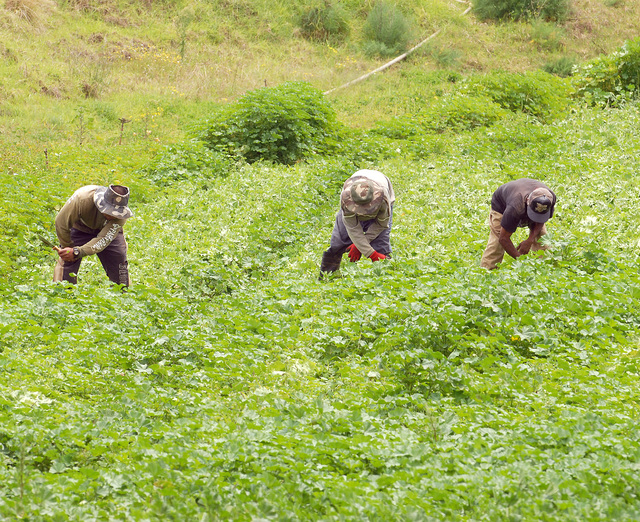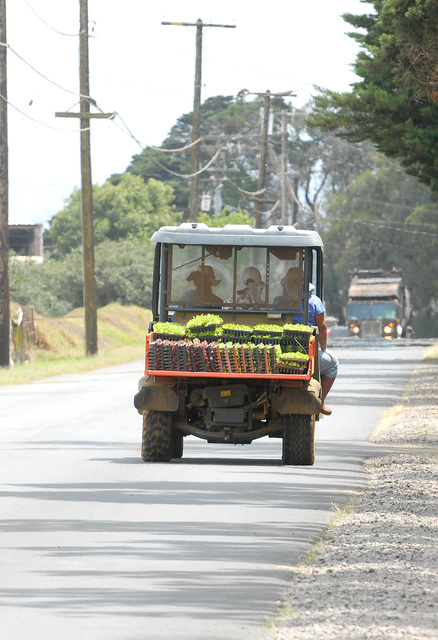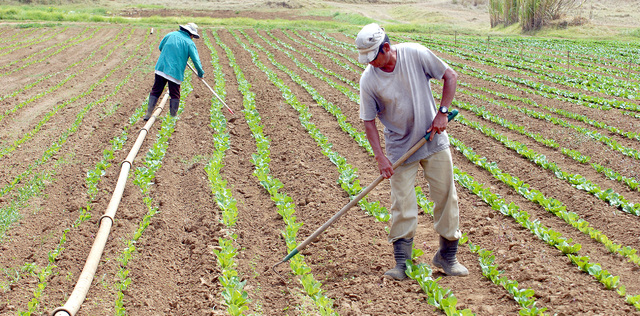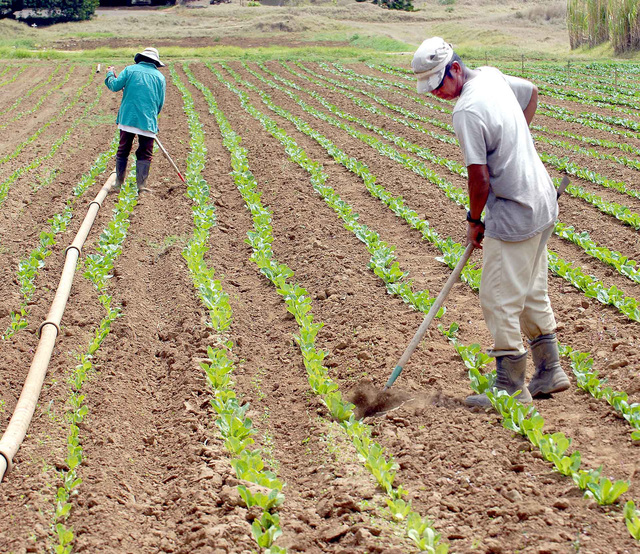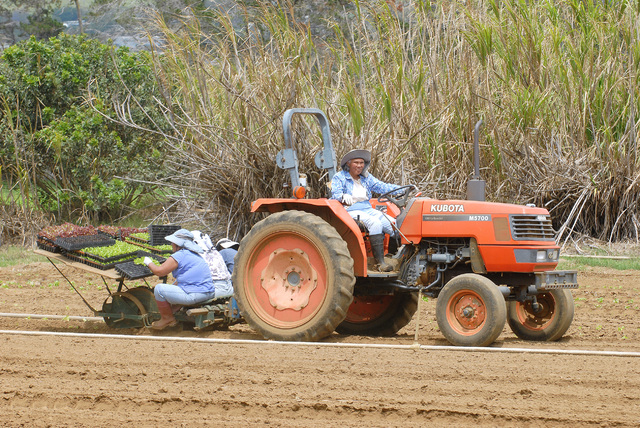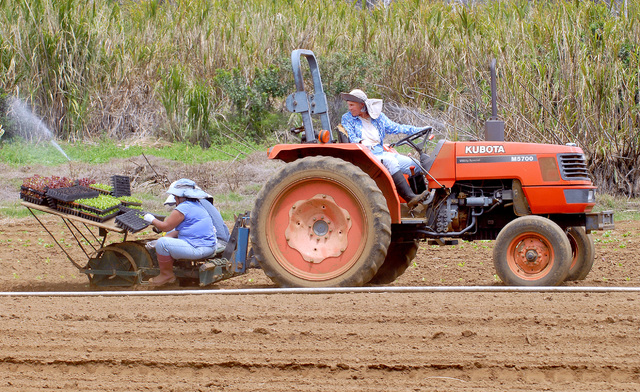Wille pitches own division to oversee Hawaii’s second biggest economic driver
Crops and livestock are so plentiful on the Big Island, one council member thinks it should have its own Department of Agriculture.
ADVERTISING
With agriculture — farms, orchards, timberland, greenhouses, nurseries and ranches — second only to tourism as the county’s main economic driver, Kohala Councilwoman Margaret Wille thinks there should be more local attention.
But her idea to create an entire new county department, and a nine-member commission to oversee it, proved a hard row to hoe Wednesday during a meeting of the Hawaii County Council Committee on Agriculture, Water and Energy Sustainability. Bill 163 would put the question to the voters as a charter amendment.
A local ag department could focus on water, energy, land use, labor, housing, food safety, agricultural theft and promotion of agricultural products in addition to helping with the invasive species issue, she said.
“We’ve always been the food basket,” Wille said.
Wille ended up postponing the measure to fill in some of the gaps exposed by fellow council members. A bill must pass three readings by midsummer in order to make it to the Nov. 8 general election ballot.
Council opponents, most notably Hilo Councilman Dennis “Fresh” Onishi, said a county department would only overlap work already done by the state Department of Agriculture.
“The state is already doing this,” he said. “Why would we duplicate what the state is already doing?”
“We do have an overlapping jurisdictional issue,” South Kona/Ka‘u Councilwoman Maile David agreed. “This doesn’t really say what you want this department or commission to address.”
Other council members said they weren’t necessarily opposed to the concept, but they needed to know more about how much a department would cost and what exactly it would do differently from the state.
The county currently has an agricultural specialist within its Department of Research and Development. Perhaps that office could be beefed up, rather than creating an entirely new department, some council members suggested.
“We could accomplish the same thing a different way,” said North Kona Councilwoman Karen Eoff.
“I do feel we have a great role to play in Hawaii County,” said Council Chairman Dru Kanuha, who represents Kona.
It’s not known how great an economic driver agriculture currently is because the state quit compiling county-level statistics in 2009.
In 2008, sales of all crops and livestock on the island accounted for $165.5 million, according to the state Department of Business, Economic Development and Tourism. In comparison, visitor spending in 2013 was estimated at $1.9 billion, according to the Hawaii Tourism Authority.
Agriculture advocates say county residents’ ability to be food self-sufficient also is an important factor to consider.
Wille, who also tried unsuccessfully to get the 2010 charter commission to approve a similar measure, said Hawaii County gets short shrift from the state Agriculture Department, which she said is more focused on Oahu issues.
For example, the state’s focus, she said, is to keep invasive species from spreading from the Big Island to Oahu, not to curb the species on this island.
Wille fought against postponing the bill, but then agreed to delay it rather than watch it get voted down.
“Is the system broken, or do we put it off to another day,” Wille asked. “I believe the system is broken.”
Two agriculture experts contacted after the meeting differed on their views of the issue. There was no testimony by any interested parties during the meeting.
Kate Hickey, president of the Kona County Farm Bureau and owner of Sunshower Farms, a coffee and microgreens farm in Holualoa, said she’d need to study the bill to understand all its ramifications, but her initial view is positive.
“I wouldn’t go so far as to say anyone’s doing a bad job right now,” she said, “but if it adds more services and helps farming on the Big Island, absolutely.”
J.B. Friday, interim county administrator at the University of Hawaii College of Tropical Agriculture and Human Resources, doubted the county would have the resources to match the level of professionalism and expertise at the state Department of Agriculture.
“We work very well with the state Department of Agriculture and find them very professional,” Friday said. “Not to dis anything the county’s done, but I wouldn’t want to see duplication, or worst of all, feuding. … If the state says acceptable and the county says not acceptable, what’s a farmer to do?”
Email Nancy Cook Lauer at ncook-lauer@westhawaiitoday.com.


